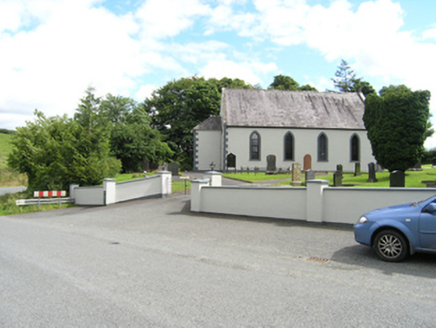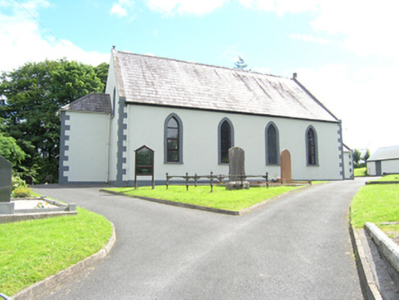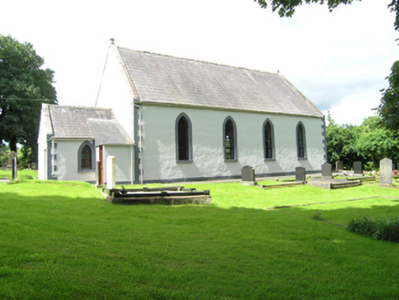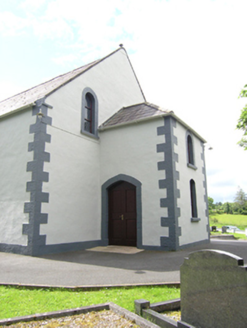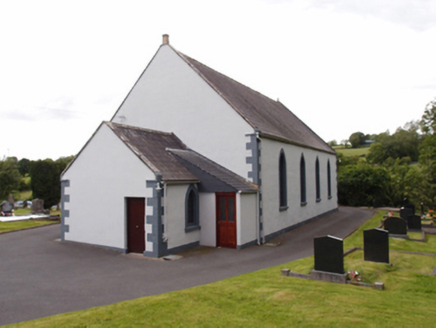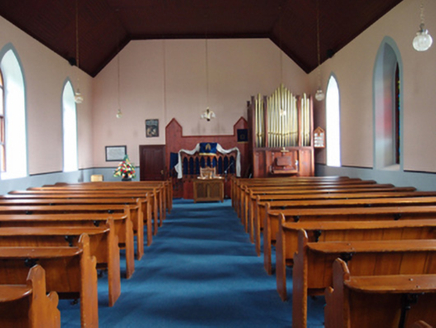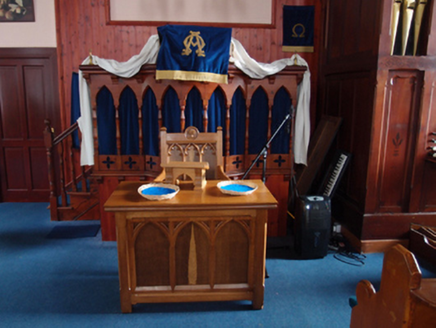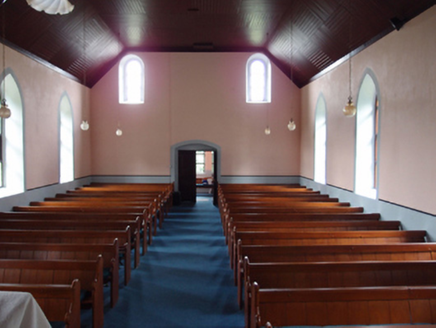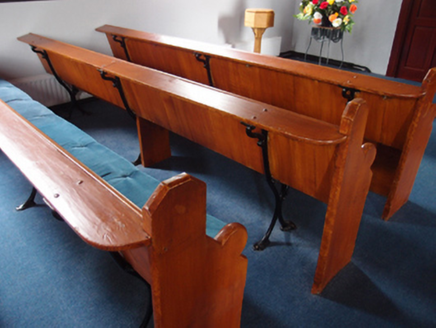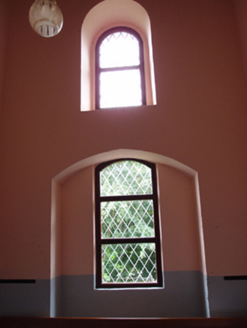Survey Data
Reg No
40402208
Rating
Regional
Categories of Special Interest
Architectural, Social
Original Use
Church/chapel
In Use As
Church/chapel
Date
1855 - 1865
Coordinates
259863, 306773
Date Recorded
02/08/2012
Date Updated
--/--/--
Description
Freestanding Gothic Revival Presbyterian church, built c.1860, with four-bay nave, two-storey single-bay porch to north-west gable, and single-bay single-storey meeting room to south-east gable with porch addition. Pitched slate roof with clay ridge tiles, plain kneelers to gables, pinnacle to north gable, cut-stone stack to south gable, and some cast-iron rainwater goods. Hipped slate roof to north porch. Ruled-and-lined rendered walls over stone plinth course, block-and-start stone quoins with hammer dressed masonry blocks. Hammer dressed stone surrounds to lancet windows and stone sills with clear-glazed casement windows haivng recent lattice panes. Pair of round-headed windows to north-west gable to either side of porch roof, similar window at both levels of porch. Two-centred arch to entrance doorway with replacement timber double doors. Spacious barn-church interior with recently re-timbered ceiling. Slightly splayed reveals to windows. Timber bench seats with cast-iron legs. Pulpit, communion table, and minister’s chair all twentieth-century furnishings. Entrance porch has superimposed windows with wide recess to lower window. Surrounding burial ground. Two-bay associated outbuilding to east on axis with church. Set parallel to the road on a slightly elevated site with boundary wall to road of roughcast rendered masonry with square-profile piers and recent metal gates.
Appraisal
A well-composed church of simple form prominently sited on a curve in the road. With hammer dressed stone quoins, window and door jambs, and tall entrance porch, this building shares many features with Corraneary Presbyterian Church. Its simple, unadorned form is typical of the Presbyterian tradition. It was altered and extended by Patrick Brady in 1924. The church has played, and continues to play, a significant role in the social fabric of the surrounding rural area.
